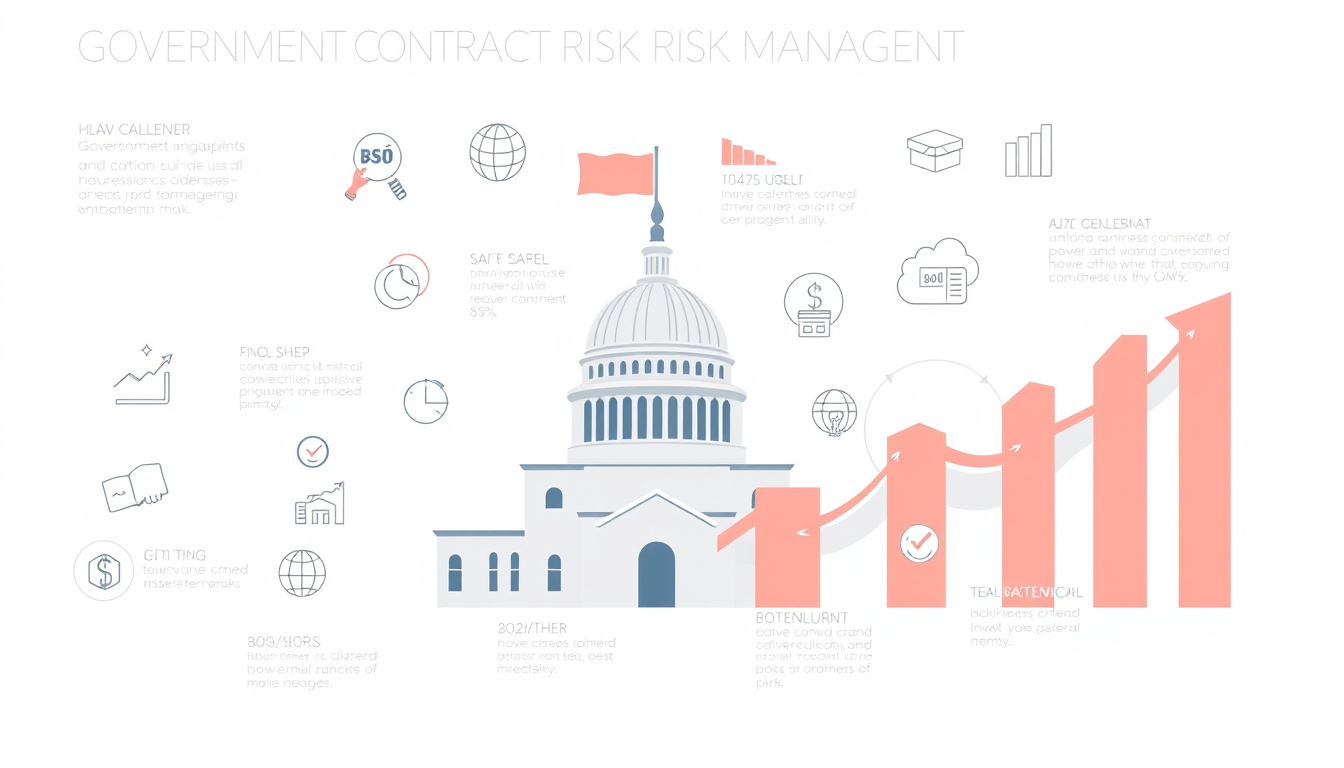Government Contract Risk Management Strategies for Small Business Success

For small businesses that enter government contracts, managing risk in those deals is very important. Government contracts depend on a mix of strict rules and heavy reports. Small businesses use clear risk plans to guard operations, meet rules, and build steady growth in federal work.
This article shows main risk plans for government work, set for small business owners. We cover key points that bring risk, steps to cut them, and how smart tools can aid clear control. Whether you are new or want to improve your current method, these ideas guide you to face risk and win public projects.
Why Government Contract Risk Management Matters for Small Businesses
Small businesses work with small budgets, few staff, and a lower margin for error than big companies. This fact makes risk bigger on government contracts. Poor risk control can cause:
- Excess costs and low profits
- Rules not met and legal fights
- Harm to reputation and fewer future deals
With good risk management, surprises are cut, choices get better, and promises are kept on time and on budget. This work also builds trust with government groups, which helps in winning the next deal.
Common Risks in Government Contracting
Seeing the risks that small firms face in federal work helps target ways to stop them. Common risks are:
- Compliance Problems: Not following FAR details or rules made by each agency may cause fines or loss of the contract.
- Financial Risks: Delays in government pay, extra costs, and wrong bills hurt cash flow.
- Performance Risks: Work that does not meet contract details can end the project and hurt trust.
- Supply Risks: Relying on one supplier or partner can prove risky if they do not perform.
- Cybersecurity Risks: With tighter rules on data safety, meeting strict security checks like the CMMC is vital.
- Contract Changes: Unexpected changes in the contract may break budgets and timelines.
Small businesses must spot, check, and control each risk to succeed in federal work.
Key Government Contract Risk Management Strategies for Small Businesses
Building a strong risk plan does not need huge funds. These solid steps give a clear guide:
1. Do Pre-Award Checks
Before you bid, check the contract terms, work details, and rule needs. See if your team and your partners can meet these needs. This check keeps surprises low during work.
2. Write a Risk Management Plan
Put your plan in a written form. In your plan, list:
- Known risks
- How likely they are and their impacts
- Steps to lower each risk
- Who must watch and act
- Backup plans
Keep the plan updated as work goes on.
3. Set Up Clear Communication and Records
Keep a clear line with government officers and your team. Write down decisions, changes, and talks. These records help in audits and stop fights.
4. Use Strong Money Management and Forecasting
Watch project costs versus the budget. Create billing steps that match government pay dates to protect cash flow. Plan money needs and keep extra funds ready.
5. Focus on Compliance and Training
Follow the latest FAR rules and agency instructions. Train staff on rules and on data protection. Not following rules can hit your budget and lead to legal pain.
6. Spread Out Your Suppliers
Do not depend on one partner or supplier. Check all partners well and keep backup choices to stop supply delays.
7. Use Tools for Risk Watching
Adopt software meant for managing government contracts. With alert signals, live views, and rule checks, tools help you act fast on new risks.
Example: How Risk Management Saved a Small Business Contract
A small IT company won a project that needed strict CMMC checks. By putting money into early training and tech updates, the firm kept data safe. Regular checking showed weak spots that were fixed fast. This method kept the project on track and built trust. It also opened doorways for larger projects with high standards.

Summary: Action Steps for Effective Risk Management
- Do detailed checks before bidding.
- Keep a written risk management plan.
- Make sure communication is clear among all involved.
- Use strong money tracking and forecast plans.
- Train staff on rules and data safety.
- Build a network of checked suppliers.
- Use tools that show real-time risk views.
Frequently Asked Questions on Government Contract Risk Management
Q1. What risks do small businesses face with government work?
Small firms face rule problems, money issues, performance gaps, supply challenges, data safety threats, and sudden changes in contracts.
Q2. How do small businesses get better at managing risk in government work?
Begin with a careful contract review, write a risk plan, keep communication open, train staff, and use contract management software.
Q3. Why is it key to watch for rule compliance in government risk work?
Watching rule compliance keeps you within scope, stops fines and legal fights, and builds trust with government groups.
Conclusion: Use Risk Management to Gain Small Business Success
Working with government contracts may bring many challenges, but using clear risk management cuts mistakes and builds strengths. Starting with strong planning and following with regular checks lets small firms meet promises, keep money safe, and build lasting bonds with government groups.
To smooth these tasks even more, check out GovScout’s smart tools that boost contract views, track deadlines, and watch rule checks well. Sign up for our updates and tips to stay on top of government work and push your small business toward steady success.
For more detailed insights on federal work and rule checks, visit the U.S. Small Business Administration (source).



Leave a Reply